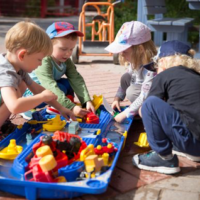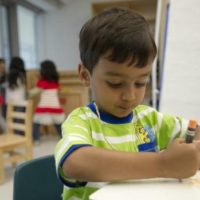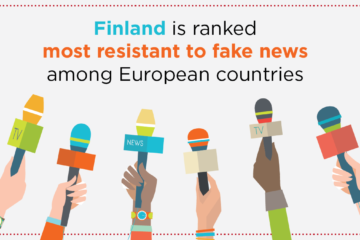Canada Commits to National Funding of Child Care and Early Learning

Minister of Families, Children and Social Development Karina Gould announced a new bill which would establish a permanent commitment to federal funding for child care and early learning. The bill also requires the government to report publicly on progress towards developing a Canada-wide system and creates a national advisory council to provide expert advice. The bill follows last year’s historic investment of CAN$30 billion (US$22 billion) over five years to make childcare affordable, accessible and high quality across the country. Gould said: “Our childcare plan is helping to grow the economy, allowing more women to enter the workforce and helping to give children in Canada the best start in life.” For more, see Newswire Canada.
Estonian Schools Accommodate Influx of Ukrainian Students
Estonia’ Ministry of Education and Research may need to stagger school schedules or shift to remote learning for some students as Ukrainian refugee students continue to enroll in schools. Liina Pold, deputy secretary general for education and youth policy, said the system is nearing capacity, and more students are enrolling daily. The biggest burden is in Tallinn, where about half of all Ukrainian refugees are living. The Tallinn schools are working to develop specialized programs for these students and find additional teachers who are needed to serve the growing numbers of students. For more, see ERR News.

Australia Invests in Affordable Child Care and Indigenous Learners

Federal Education Minister Jason Clare’s child care subsidy plan passed its final hurdle in the legislature and is set to go into effect in July. The plan will reduce child care costs for an estimated one million families across Australia. Households earning less than AUD$80,000 (US$54,080) per year are eligible for a 90 percent subsidy; families earning up to AUD$350,000 (US$236,600) will receive subsidies on a sliding scale. Australia also announced additional investment in early childhood education and care for Indigenous children. The federal government has committed AUD$334 million (US$225.8 million) to fund early learning programs for Indigenous learners throughout the country, with the goal of closing the gap in education outcomes between this population and other young children in the country. For more information on Australia’s child care subsidies, see My GC.
Singapore Refreshes its Lifelong Learning Course Offerings
SkillsFuture Singapore released a new report highlighting skills mid-career workers, who make up half of the resident workforce, will need to stay competitive in their current jobs or to be able to transition into emerging fields. The latest edition of Skills Demand for the Future Economy issued by the government agency charged with promoting a culture of lifelong learning focuses on three high-growth areas of the economy: environmental sustainability (green economy), digitalization and software development (digital economy) and health and wellness (care economy). The report identifies priority skills that are expected to be in high demand, many of which are transferable across different jobs and industries. SkillsFuture has refreshed its lifelong learning course offerings, available to all residents at no or low cost, to reflect these priority skills and jobs. Read more at TODAY.





